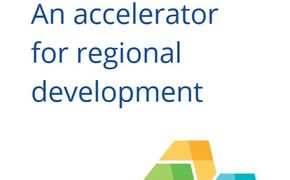Nature provides us - free of charge - with a constant supply of oxygen, clean water, food and materials. Natural processes regulate the climate, remove pollutants from the atmosphere and recycle organic waste. These benefits flowing from nature to people, the so-called eco-systems services, cater for basic needs, well-being and prosperity. The annual benefits of the Natura 2000 network alone are massive and have been estimated at 300 billion Euro across the European Union.
In cities, green infrastructure can reduce air pollution, noise and the impact of extreme weather such as heat, drought and floods whilst at the same time increasing the attractiveness of city centres and residential areas. Last but not least, nature encourages a stressed and overweight society to engage in physical activity.
However, humanity is exploiting the offerings of mother nature at a neck breaking pace. In 2019, overshoot day has been already on 29 July and the UN warned that nature is declining globally at rates unprecedented in human history. European eco-systems are degraded every day by land fragmentation, urban expansion, deforestation and infrastructure development affecting habitats, species and the coherence of landscape. If Europe wants to halt the trend and reverse this degradation, it has to act now and it has to act fast. To this end, the European Commission has developed the Green Infrastructure Strategy aiming to ensure the protection, restoration and creation of green infrastructure as an integral part of spatial planning and territorial development. It also issued comprehensive ‘EU guidance on integrating ecosystems and their services into decision-taking’.
In its 2019 review of the EU Green Infrastructure Strategy, the European Commission concludes that progress has been made at various levels but the deployment of Green Infrastructure needs to be further scaled up. The integration of green infrastructure into appropriate EU Funding mechanisms has been successful but '…the uptake is still too limited.' The Commission urges European policy makers at all levels to engage in a more strategic approach, in mainstreaming of green infrastructure in EU policies and in a better use of the future EU funding instruments.
Several Interreg Europe projects (such as PERFECT, SWARE, UL2L, PROSPERA, CityZen, Blue Green City) are already developing policy solutions for a rapid deployment of blue and green infrastructure using future regional and cohesion funds. To this end, the workshop ‘Developing healthy and prosperous urban eco-systems’ of the Interreg Europe Policy Learning Platform will tap into the experiences of Interreg Europe partners and many related European programmes.
To hear about latest European policy developments, learn from peers and brainstorm future common activities, please visit the event website!









